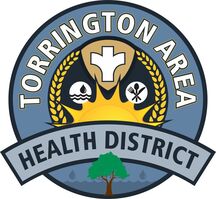Bed Bugs
|
Beds bugs are parasites that prefer to feed on humans but if humans are unavailable, they will feed on other warm-blooded animals such as birds, rodents, bats, and pets. Bed bugs were common in the US prior to WWII but with the widespread use of synthetic insecticides such as DDT, their numbers were greatly reduced.
With the widespread use of "baits" and the banning of many insecticides, bed bugs are making a comeback. International travel and commerce are thought to contribute to the spread on these insect hitchhikers which are easily transported in luggage, clothing, bedding and furniture. Bed bugs can infest airplanes, ships, trains, and buses. They are frequently found in dwellings with a high rate of occupant turnover, such as hotels, dormitories, shelters, apartment complexes, and prisons. Such infestations are not usually a reflection of poor hygiene or bad housekeeping. |
|
Pesticides
Choose your pesticides wisely when spraying for bed bugs. DPH, DEEP, and The CT Agriculture Experiment Station warn residents not to use OUTDOOR Pesticides for Bed Bugs. Most pesticides available to the public do not work for bed bug infestation.
It is recommended that residents hire a pesticide management professional licensed by the DEEP to treat for bed bugs.
Form more information check out The CT Agricultural Experiment Station training video and their links to other helpful sites!
Choose your pesticides wisely when spraying for bed bugs. DPH, DEEP, and The CT Agriculture Experiment Station warn residents not to use OUTDOOR Pesticides for Bed Bugs. Most pesticides available to the public do not work for bed bug infestation.
It is recommended that residents hire a pesticide management professional licensed by the DEEP to treat for bed bugs.
Form more information check out The CT Agricultural Experiment Station training video and their links to other helpful sites!


